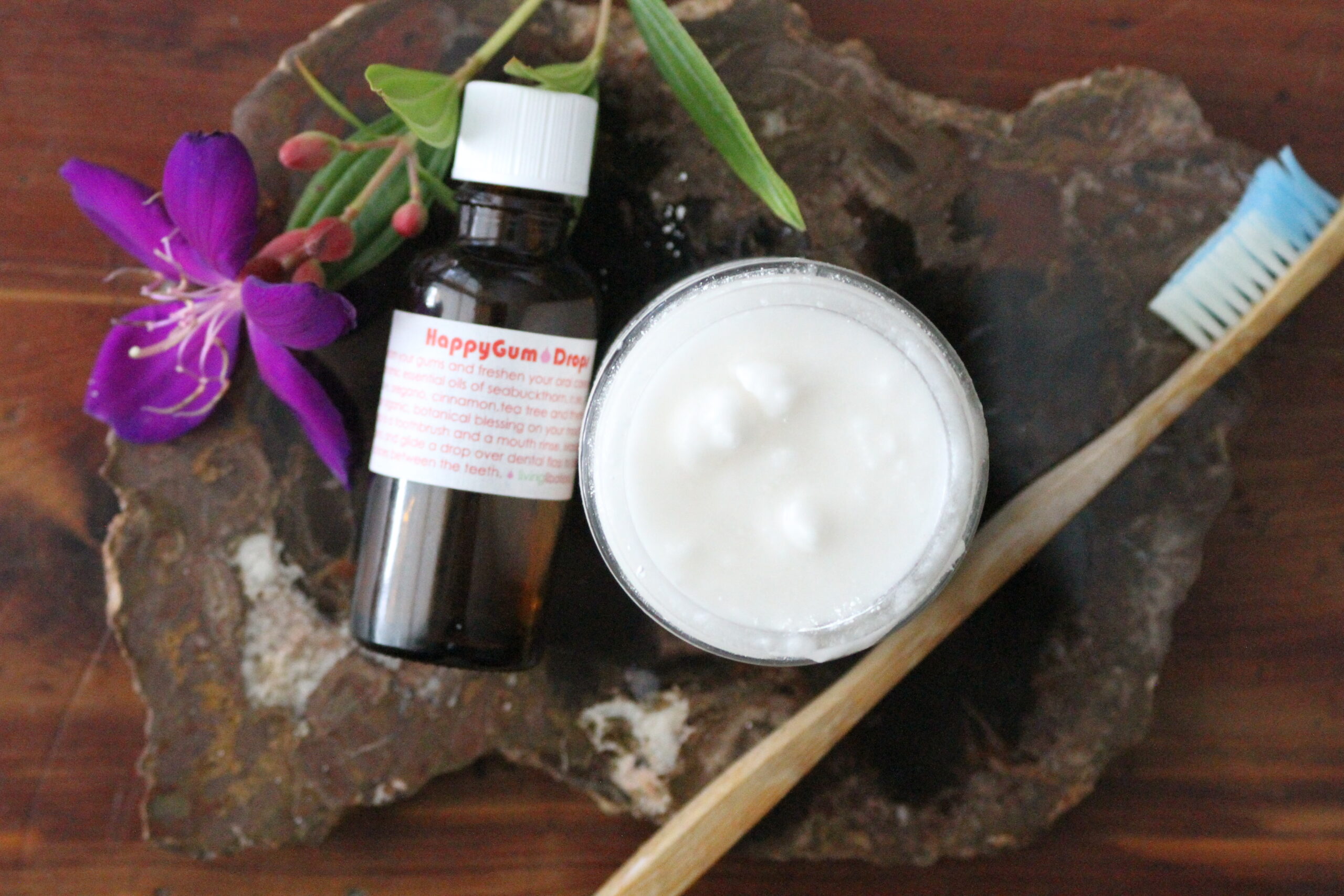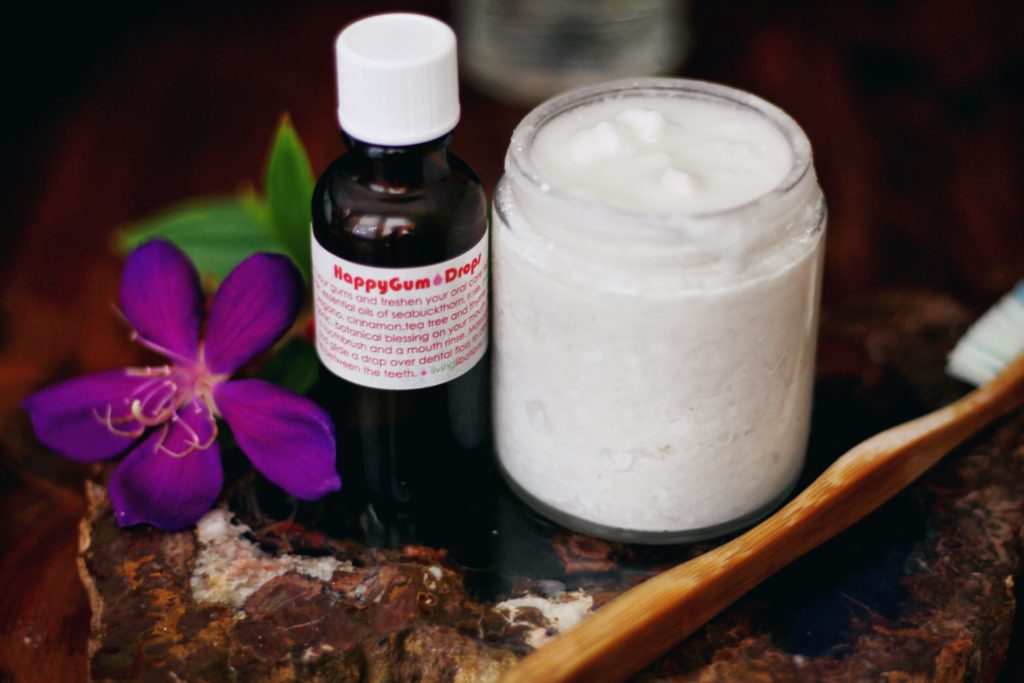Keeping good dental hygiene is a must for good overall health. The entire body is connected and the moment we specialize, we pay a price. We cannot split the body up into parts and hope to treat one area without treating the other. The entire body is connected via meridian lines and is ruled by our immune system.
Taking a look into our mouths we find there are 32 teeth with 32 vertebrae in the spine and each are connected to one another. Not just that, but every tooth and vertebrae are connected to specific organ systems within the body.
When we fail to keep our mouths clean our immune system starts to suffer. Likewise, if we do not care for our digestive systems and organs, our teeth can suffer, leading to a vicious cycle of problems. In fact, periodontal disease (bleeding gums) has been linked to a host of health problems, including diabetes, low birth weight, pre-eclampsia, placental infections, infertility even cancers of the blood. 1
Bleeding gums are caused by a species of pathogenic bacteria known as spirochetes in the mouth. They literally eat away at the gum lining causing them to bleed. As this progresses, we find that overtime as we eat, we release a micro-amount of pathogens into the blood stream for the immune system to handle.
Diet & Dental Problems
Many people are voluntarily giving themselves gum disease, tooth decay and the dental problems without knowing. Research has shown time and time again that sugars, including fruit sugar and “healthy sugars” alter the pH of the mouth. A lowered pH in the mouth leads to the overgrowth of harmful pathogens like Streptococcus mutants, which promote dental plaque and is often the cause of street throat. 2
However, how many doctors treat strep throat by addressing dental hygiene and overall immunity? Typically, strep is treated with a round of antibiotics that simply knock out ones immunity, never addressing the root, lifestyle problems like a high-carb, sugary diet, stress and other factors that lower immunity.
Foods That Cause Tooth Decay & Gum Disease
Sometimes a “healthy diet” isn’t enough for keeping the teeth healthy. And if our diet isn’t supporting dental health, then is it really supporting our overall health? I’d say no.
Even with a healthy diet, some foods on this list will cause a tooth decay, gum problems and more. Some healthy foods that may be problematic may not need to be avoided all-together but rather, consumed on occasion. However, many people who get caught in too strict of dietary dogmas, often consume these foods in excess.
Many vegan, vegetarian and especially modern American and Western European diets contain foods that weaken the immune system and cause tooth decay. Some of these foods are even considered “healthy foods”, yet they only lead to problems.
At basic, the more you avoid these foods, the better of a chance you have to avoid tooth problems and even remineralize your teeth.
Also know, you are always free to do whatever you want with your life, diet, etc. Some will never consume foods that may be most helpful for their overall dental health and immunity, such as raw animal products, because of their own ethics. I understand, there is a principle of least harm and greatest good. If that is you, then do the best you can and own the responsibility of your own choices. However, these guidelines will without doubt benefit the health of your teeth and mouth.
You be the judge, but here are the foods I recommend to avoid when healing the teeth:
- Avoid sweets and foods sweetened with these items—white sugar, cane sugar, evaporated cane juice, agave nectar, jams, dried fruit, candy bars, health food bars, yacon syrup, erythritol, lo han, palm sugar, coconut sugar, glycerin, fructose, high fructose corn syrup, inulin, fructooligosaccharides (FOS), brown rice syrup, malted barley and grain sweeteners, maltodextrin, sucrose, dextrose, sucralose, aspartame, and saccharine.
- Avoid white flour, GMO or altered grain products and even non-fermented organic grain products such as: crackers, cookies, doughnuts, pies, breakfast cereals, granola, muffins, pastries, flour tortillas, bagels, noodles, pasta, pizza, couscous, bread and nearly every packaged product that contains grains.
- Avoid non-germanted or fermented whole grains including whole wheat, rye, kamut, spelt, brown rice, and quinoa, especially non-organic.
- Avoid raw, non-sprouted nuts and nut butters —including all raw nuts, as well as peanut butter, raw almond butter and raw tahini.
- Avoid hydrogenated oils such as, margarine or other butter substitutes.
- Avoid low quality vegetable oils such as, vegetable, soybean, canola, corn and safflower oils, and Crisco®. Also, be careful if you eat out; most restaurants use these vegetable cooking oils because of how cheap they are.
- Avoid pasteurized, homogenized or grain-fed dairy products. Also avoid low-fat dairy products and powdered milk and anything that contains it.
- Avoid store-bought nut milks including, rice milk, soy milk, hemp and almond.
- Avoid table salt and the many foods that contained refined salt. Table salt throws off electrolyte balance, causing blood pressure problems and other issues that affect the teeth negatively.
- Avoid conventional fast foods and junk foods.
- Avoid stimulants like poor-quality coffee, soda, energy drinks, sports drinks, or alcohol. Do not smoke cigarettes and consume only raw cacao without sugar.
- Avoid unfermented soy including isolated soy protein, tofu, soy, veggie burgers, soy “meat” and soymilk.
- Avoid most green powders. Many green powders have sugar and improperly prepared ingredients that should be fermented. There are a few exceptions, which would be 100% food-based dried powders with no sweeteners added.
- Avoid factory farmed meat, fish, and eggs. The quality nutrients in these sick animals are toxic and contain many chemicals and estrogens and above all else, contribute to animal suffering and a sick industrial food system.
- Avoid too much fruit. Even though fruit is natural, people often eat too much. Be very careful with sweet fruits like as oranges, bananas, grapes, peaches, blueberries and pineapple especially, which are high in fructose that can alter the mouth pH and lead to plaque and rob the teeth of minerals.
- Avoid medications, over-the-counter drugs, and vaccines. These damage the liver, weaken the immune system and glandular system – many are causative factors in tooth decay.
- Avoid food additives like MSG, nitrates, and nitrites.
- Avoid all commercially processed foods; crackers, chips, boxed cereals, pastries, cookies, TV dinners, packaged sauce mixes, etc.
- Avoid synthetic vitamins and any foods containing “fortified” ingredients.
Acceptable Foods List
As far as acceptable foods go, here is a counter-list to the previous foods to avoid list:
- Acceptable sweets would be raw honey, organic maple syrup (grade B preferred), real cane sugar, raw stevia (actual herb), whole low-glycemic fruits like berries.
- Acceptable grains like truly fermented sourdough bread made with unbleached flour (bran and germ removed), partially milled rice that is soaked with a starter. White rice is acceptable.
- Acceptable nuts and butters would be those that are properly germinated and soaked first. You can also dehydrated nuts after soaking and eat 2 oz. daily.
- Acceptable fats are preferably raw, organic and always from small producers. The most healing fats would include coconut oil, palm oil, stone-crushed olive oil, raw butter, grass-fed lard, tallow, chicken, duck and goose fat.
- Acceptable dairy products are raw and grass-fed from Jersey cows, goats, and sheep. Always go for whole fat, not skimmed. When you have only grocery store options for dairy products then choose vat-pasteurized, grass-fed dairy products from smaller, local farms. Fermented dairy like yogurt, kefir and cultured butter are better than non-fermented. If you can’t find local, then choose products from Australia, Ireland and New Zealand, which contain far more clean soils and environments.
- Acceptable salts are Himalayan salt, Celtic Sea Salt, Real Salt and other unheated sea salts.
- Acceptable soy products are traditionally fermented—You can have small amounts of unpasteurized soy sauce, miso, and natto.
- Acceptable proteins are grass-fed or even better wild-caught animals and fish. These offer superior quality, more bioavailable than most plant-proteins, are complete proteins and are least allergenic proteins. They are true superfoods and have been consumed longest by man. Just be sure to note the differences between industrial, commercial animal food and grass-fed, local and wild. You can read more here.
Foods that Heal Teeth and Gums
The billion dollar question remains, what do we eat? Well, amongst the dietary warfare, there are neutral grounds. There are also questionable grounds. For dental health there are foods you will find specifically healing for those who have the trouble of low immunity or teeth problems. These foods may not be in alignment with your values around eating, therefore, the choice is yours to either help your body achieve an ideal state of health, or deal with the dental consequences of your current diet. My hope is that you can find a happy medium, more freedom in eating, gained awareness of healthy eating and of course, greater dental and overall well-being.
That being said, here are some therapeutic foods that contain necessary nutrients for a strong immune system, healthy microbial balance, strong teeth and healthy gums:
- Fermented Cod Liver Oil. Try 1⁄2 teaspoon two or three times per day of Green Pasture’sTM Blue IceTM Royal Blend. Cod liver oil is a rich source of fat-soluble nutrients that build immunity, healthy hormones and glandular systems. In my time spent living in France, I found that every child was raised on this scared food. I also found the French to have healthier teeth, incredible hair, overall healthier frames.
- 2 cups of raw grass-fed, whole-fat milk, kefir, clabber, or yogurt or 4 ounces of raw grass- fed cheese preferably from Jersey Cows. If you cannot tolerate dairy or do not wish to consume it for moral reasons then you will want to up your doses of green vegetables for calcium and magnesium. Strive for 3 cups of a cooked green veggies in variety each day. Even better if you ferment them. You can also consume raw coconut kefir.
- Bone broths or stews made from local, pastured meat or fish made from a gelatin-rich broth. Get a recipe HERE and be sure to add in sea veggies to added minerals.
- 2-8 ounces of high-quality animal protein or wild-caught fish from either anchovy, sardine, herring, mackerel, halibut or salmon.
- Vitamin C-rich foods; broccoli, cauliflower, bell peppers, mustard greens, cabbage, sauerkraut, kohlrabi, liver and adrenal glands.
- Probiotic foods; especially coconut kefir and raw kraut.
- Something we can all agree on – eat mostly non-starchy vegetables such cabbage, kale, spinach, zucchini, green beans, broccoli, etc.
Homemade Tooth Paste for Gum Infections
Keeping a strong immune system is key for healthy gums and teeth. Therefore, diet, exercise, and stress-management are usually far more important things to consider when keeping your teeth healthy, we cannot overlook dental hygiene.
Here is a quick, easy and very effective homemade tooth paste that can wipe out gum disease within days:
- 1 cup aluminum-free baking soda (baking soda spot kills the spirochetes that cause bleeding gums and also neutralizes lactic acid produced by these bacteria that cause tooth decay.)
- 1/2 cup spring water
- 2 drops anti-bacterial essential oils (I use this one, it’s incredible).
- 1/2 tsp. Celtic Sea Salt
- 1 tsp. organic extra-virgin coconut oil
- 1 tbsp. birch xylitol (xylitol breaks down the bio-film produced by harmful pathogens in the mouth, making it easier for them to be washed away during waterpiking).
- In a bowl, mix all ingredients together to form a paste. Store in a dark glass jar out of direct light. Use it twice a day in addition to the dietary and lifestyle recommendations.
- I would also suggest using a salt rinse, waterpik and gum blotting brush in addition to this tooth paste.

